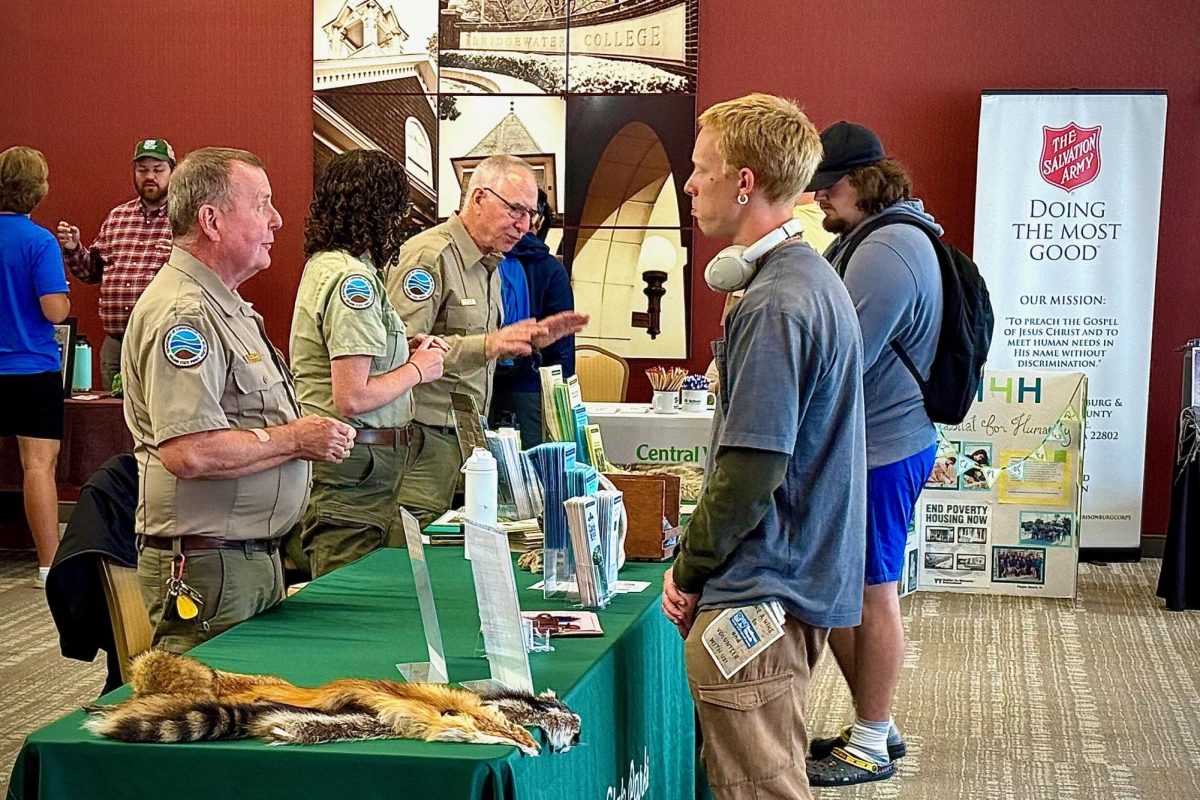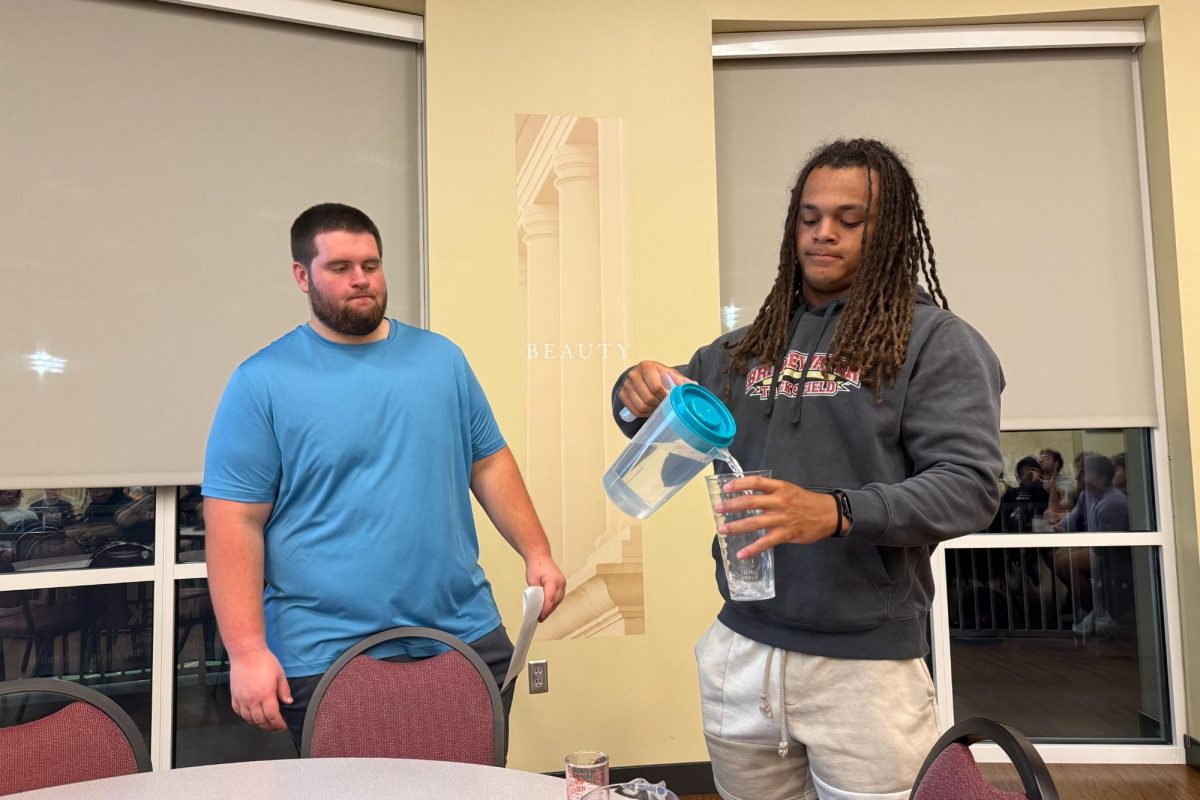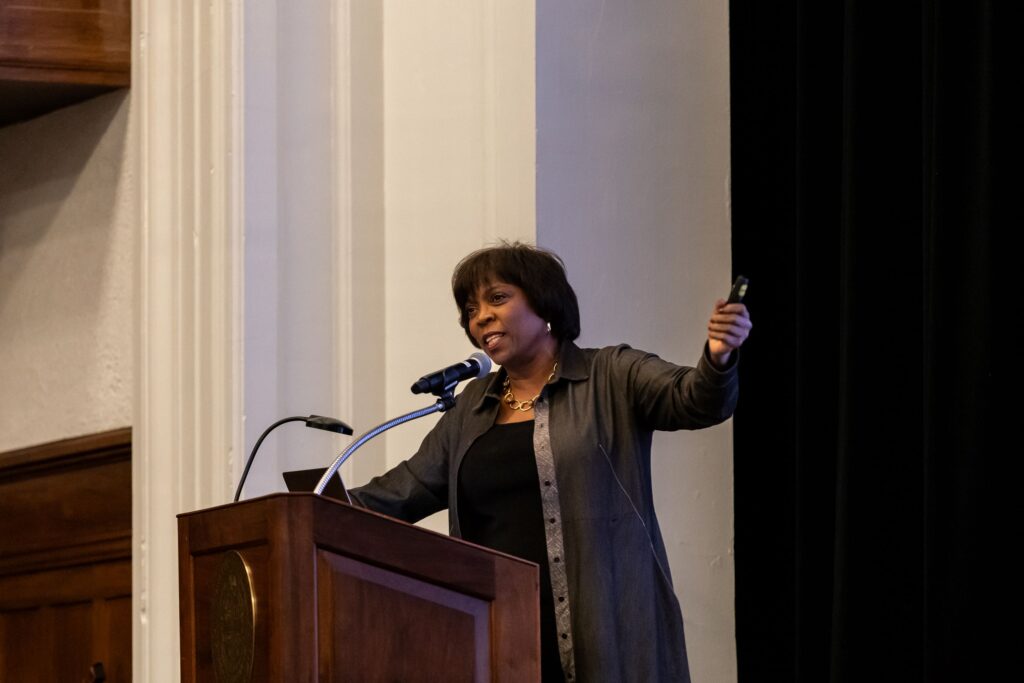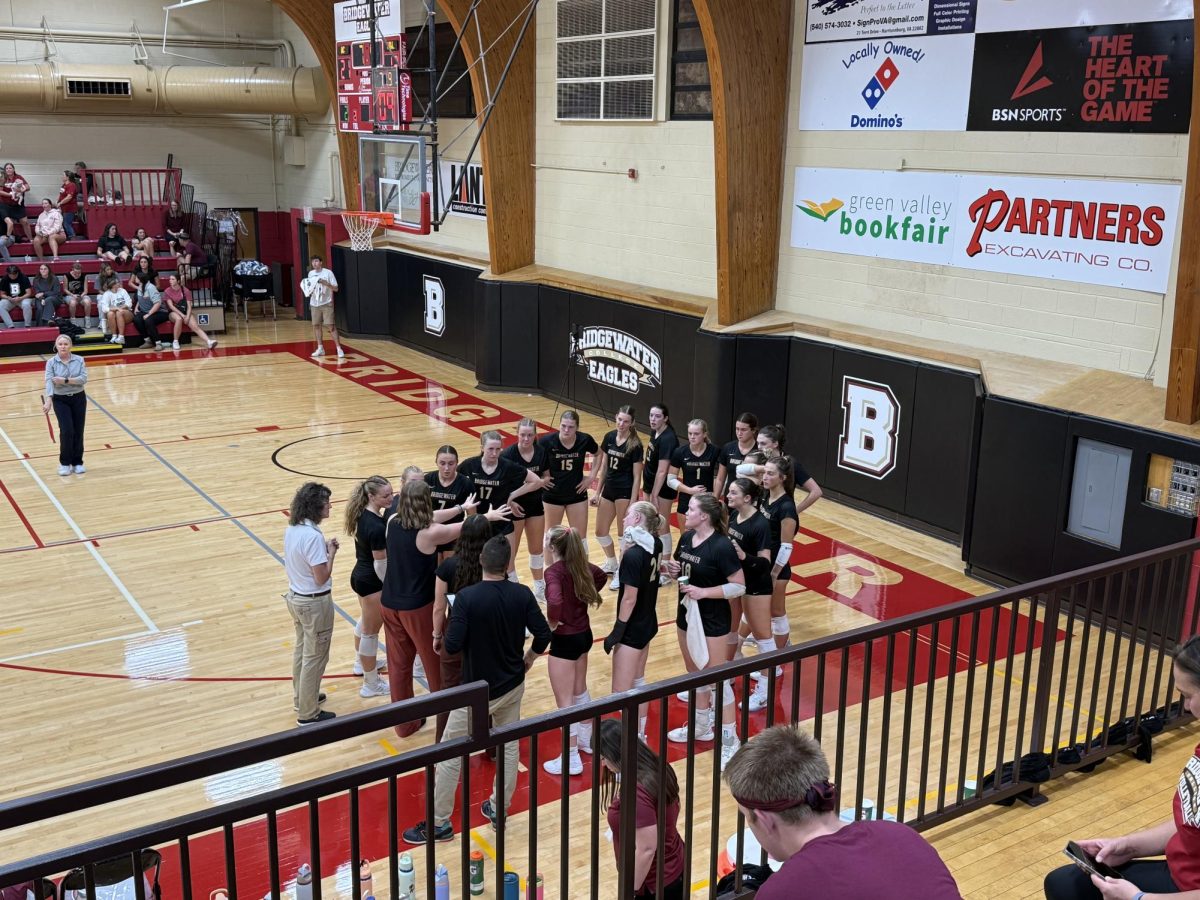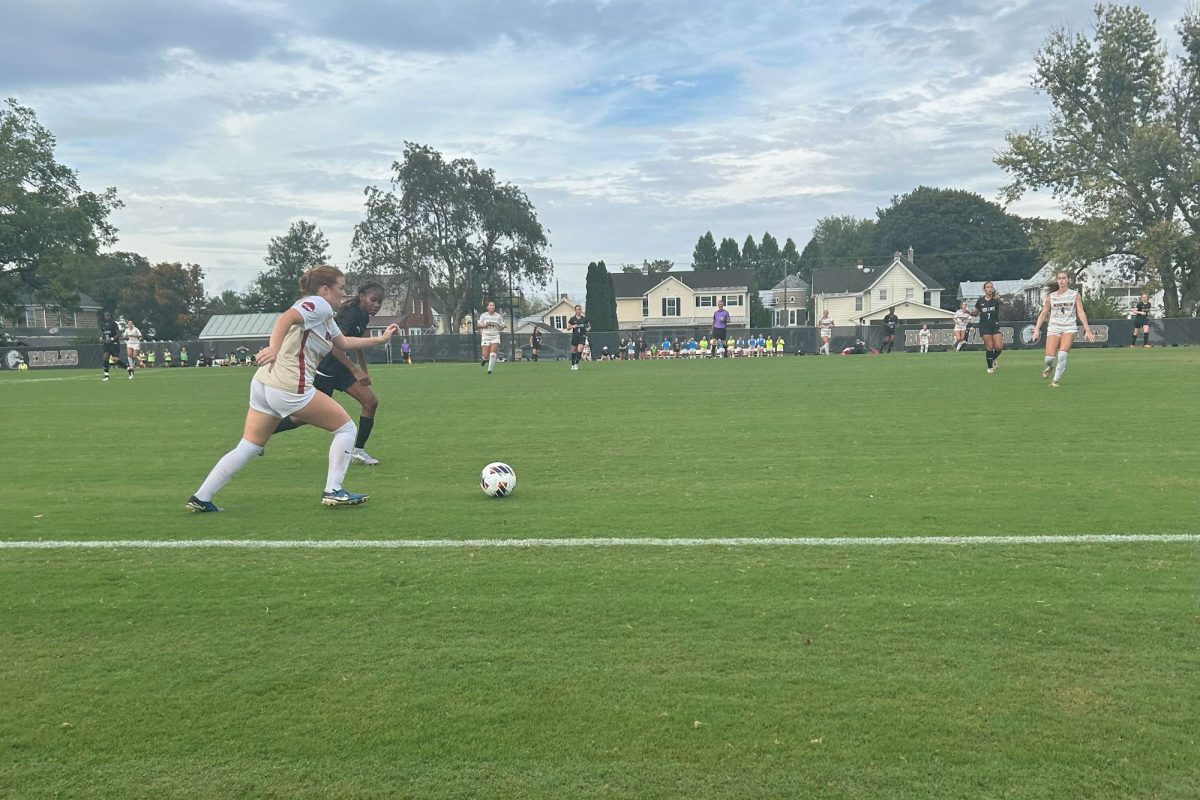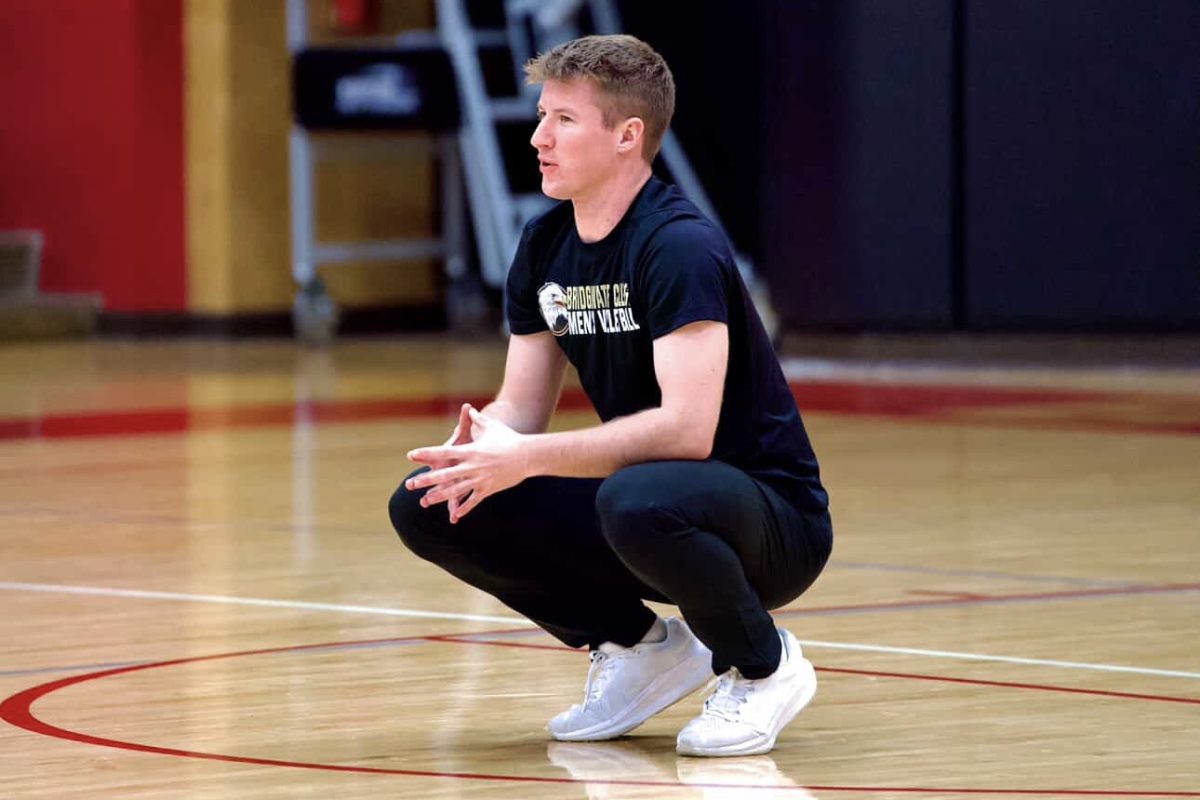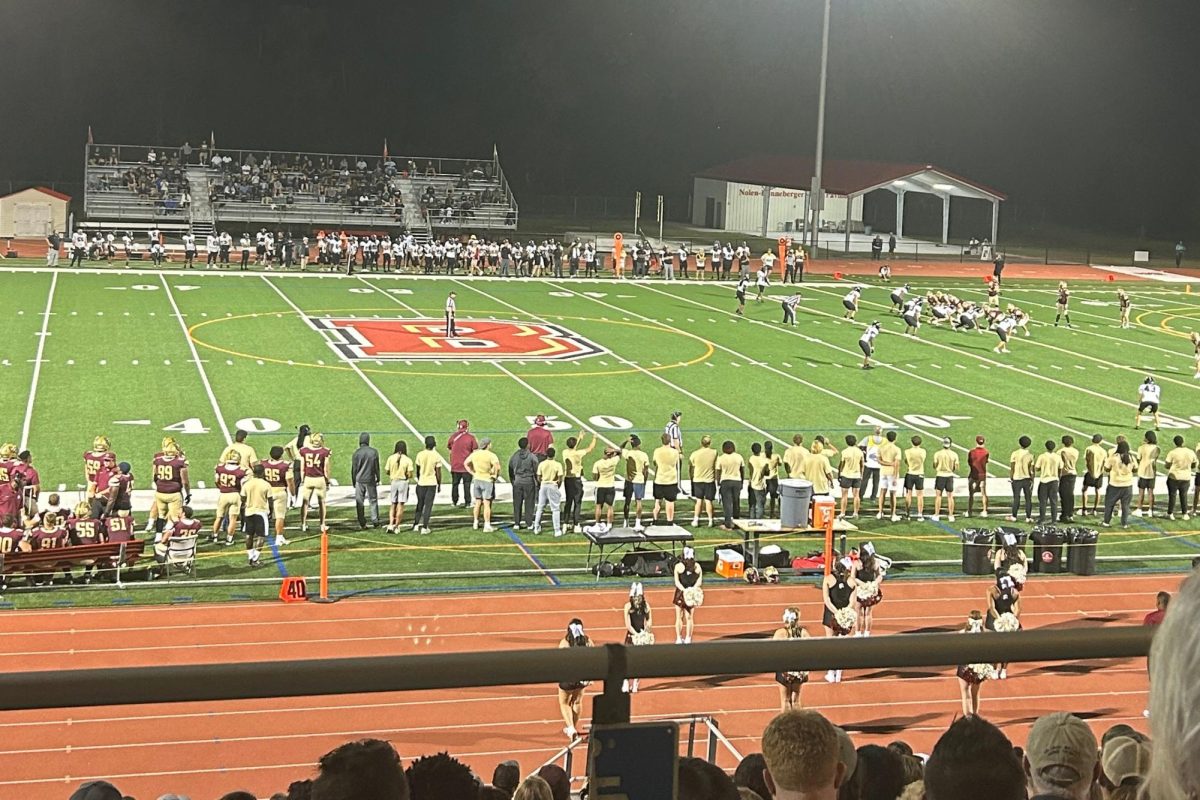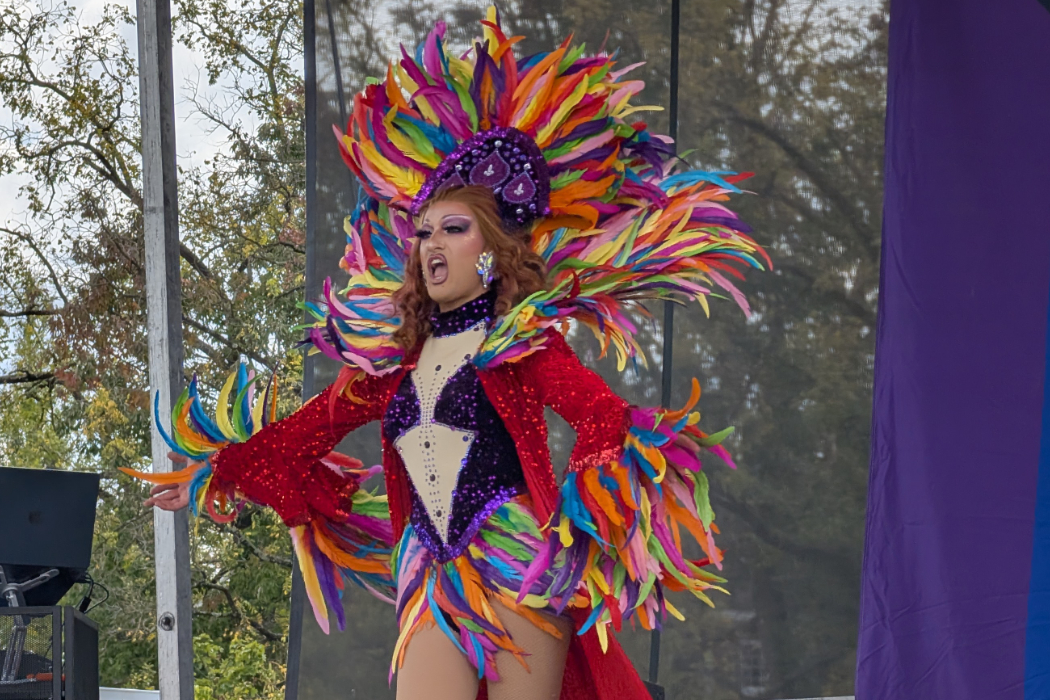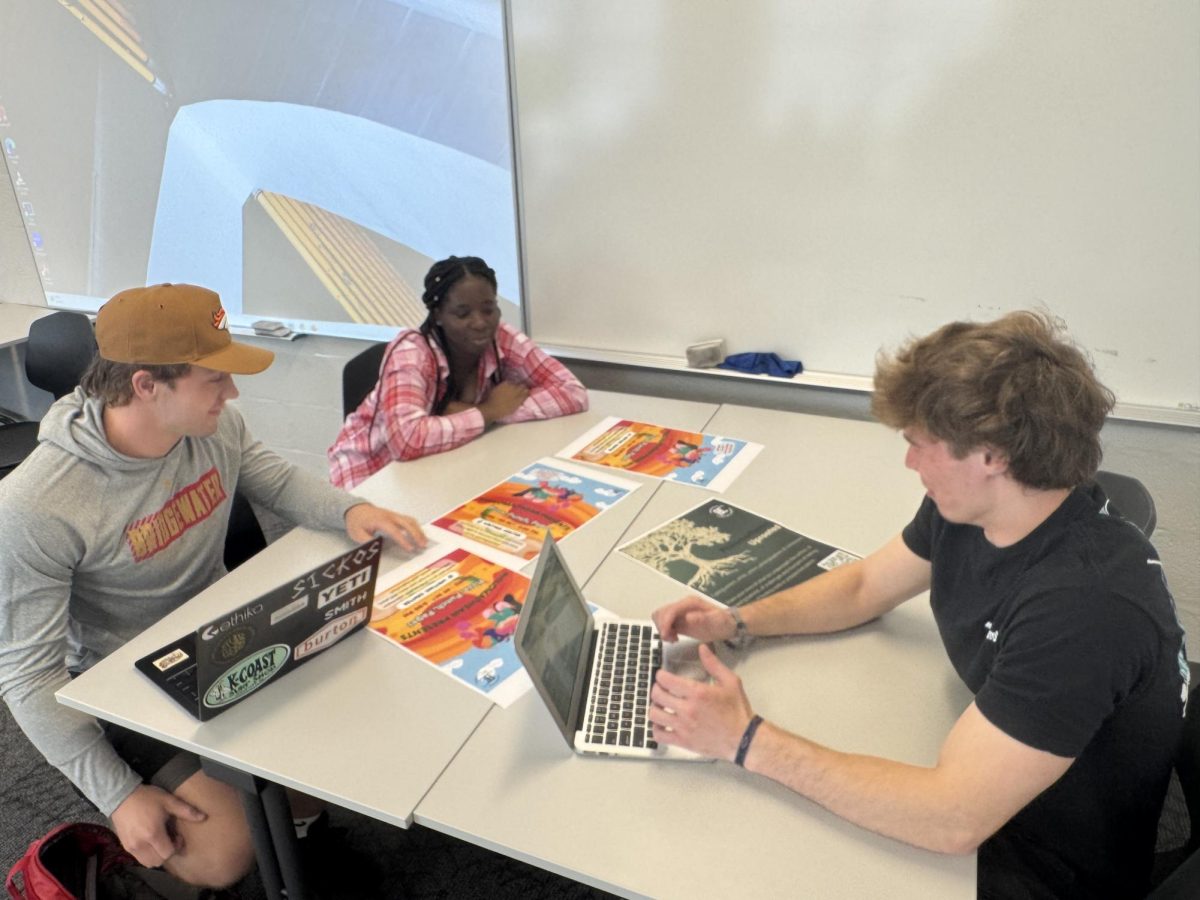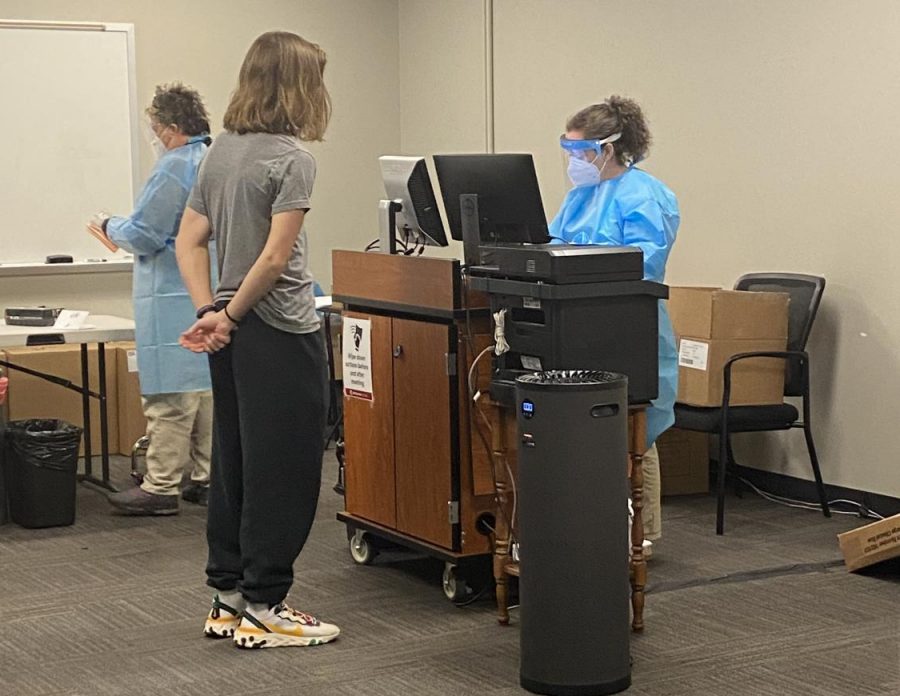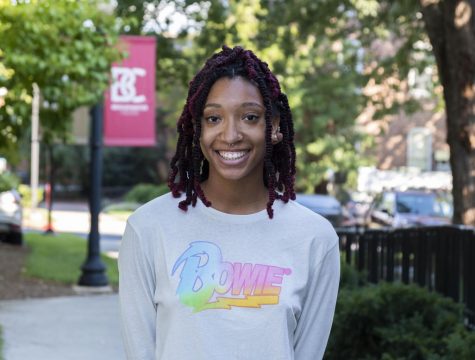COVID-19 Testing at Bridgewater College
New Protocols in Place Leave Students and Staff Feeling ‘Safer Around Campus’
Heather Grant assists a randomly selected resident student in the Media Room of Nininger Hall with the antigen test as part of Bridgewater College’s newest COVID -19 guidelines.
January 26, 2021
Bridgewater, Va. – Students and parents received word from the Bridgewater College Covid Operations staff on Friday, Dec. 18, that the college would be requiring re-entry testing for the spring semester.
In addition, BC decided to implement surveillance testing and the signing of the Spring 2021 Healthy Eagle Pledge due to the rise of COVID-19 case numbers locally and nationally.
According to the email, all residential students were required to show evidence that they had tested negative using the PCR test for COVID-19 within five days of their arrival to campus.
Junior business major Jaden Bynum was relieved that BC decided to take preemptive measures to ensure student and facility safety while on campus.
“I felt as though the school should have done this last semester, following numerous other schools — we are behind the curve,” said Bynum. “I feel safer around campus and attending in-person classes now that I know the students around me have already been tested and hopefully continue to follow the rules.”
Although the email stated that students were required to take the PCR test before returning to campus, residential students were not asked to show proof of their negative tests before being allowed to move in as the email suggested.
Associate Dean of Students and Psychologist Neal Rittenhouse, is one of the employees on the Covid Testing team at Bridgewater College.
“The College administration decided that residential students posed the highest risk of virus transmission and, as we often do, we relied on our students’ honesty and integrity in completing the pre-requisite testing for re-entry,” said Rittenhouse. “Students are expected to have a copy of their negative results available in the event that the College requests verification.”
As Rittenhouse went on to further explain, the factors of non-compliance with an official College request could result in conduct sanction. The specific response would depend heavily on each individual circumstance.
Rittenhouse believes that this process has greatly benefited the BC community.
“The scientific data currently available indicates that more than 60% of those who transmit the virus are asymptomatic,” said Rittenhouse. “A number of students contacted us to make us aware that they had tested positive and nearly all were asymptomatic. This allowed us to delay their move back to campus until they were safe to do so.”
The first weekend back to campus, BC tested over 130 residential students by randomly selecting 25% of those returning and have notified those students who have tested positive.
Students are notified through email about their selection for testing and are given instructions about where and when the test will be administered.
According to the email from the Bridgewater College Covid Operations team, “after the first week of classes conclude the College will randomly select 10% of the non-athlete student population each week for the remainder of the semester.”
BC student-athletes will follow COVID-19 testing protocols as directed by the NCAA.
Currently, the general student body testing is being performed weekly on Monday, Tuesday and Thursday from 3:30-5:00 pm.
Students will receive an email from [email protected] 24 to 48 hours before their scheduled test date. Athletic testing will take place throughout the day and around athletic practices, competitions and weight room activity.
The student body is being tested with a PCR test from Tempus Labs, Inc. Once a student has had a PCR test performed, they will receive an email from Tempus to download the app (Tempus COVID-19).
Students will be able to access results via the app once Tempus Lab has processed their test. Any students whose test results are positive will also be contacted by a BC official to explain their quarantine options.
Associate Athletic Director, Head Athletic Trainer and Senior Woman Administrator Heather Grant is one of the eight staff members who have been trained to conduct and administer the COVID-19 Rapid and PCR antigen test.
“I have always felt that the health and safety of Bridgewater student athletes is one of my primary job responsibilities. With the current pandemic, COVID testing is a prime way I can help the BC community be safe,” said Grant.
Each of the staff members selected to conduct the tests hold their state medical licenses as healthcare providers.
According to Grant, staff and faculty athletic trainers were able to opt out if they had concerns for their health and safety.
“I am very thankful for the College and their support for all of our athletic trainers being listed as 1A status for COVID vaccinations as front-line health care providers. By having my first vaccination already completed and having all the PPE that we need for testing available, I feel the College is keeping me as safe as possible,” said Grant.
With the spring semester full of collegiate competition for every sport, measures have been put in place by the NCAA to keep athletes safe.
“The NCAA has organized all NCAA sports into low, intermediate, or high risk of transmission of COVID-19 during athletic competition,” said Grant. “The NCAA has also created baseline testing protocols for institutions to follow based on risk of transmission.”
Intermediate and high-risk sports at BC will be tested with rapid antigen tests three times a week during the competitive season. Low-risk sports will be tested with the general student body surveillance testing with PCR tests. Both guidelines are in line with NCAA recommended protocols.

